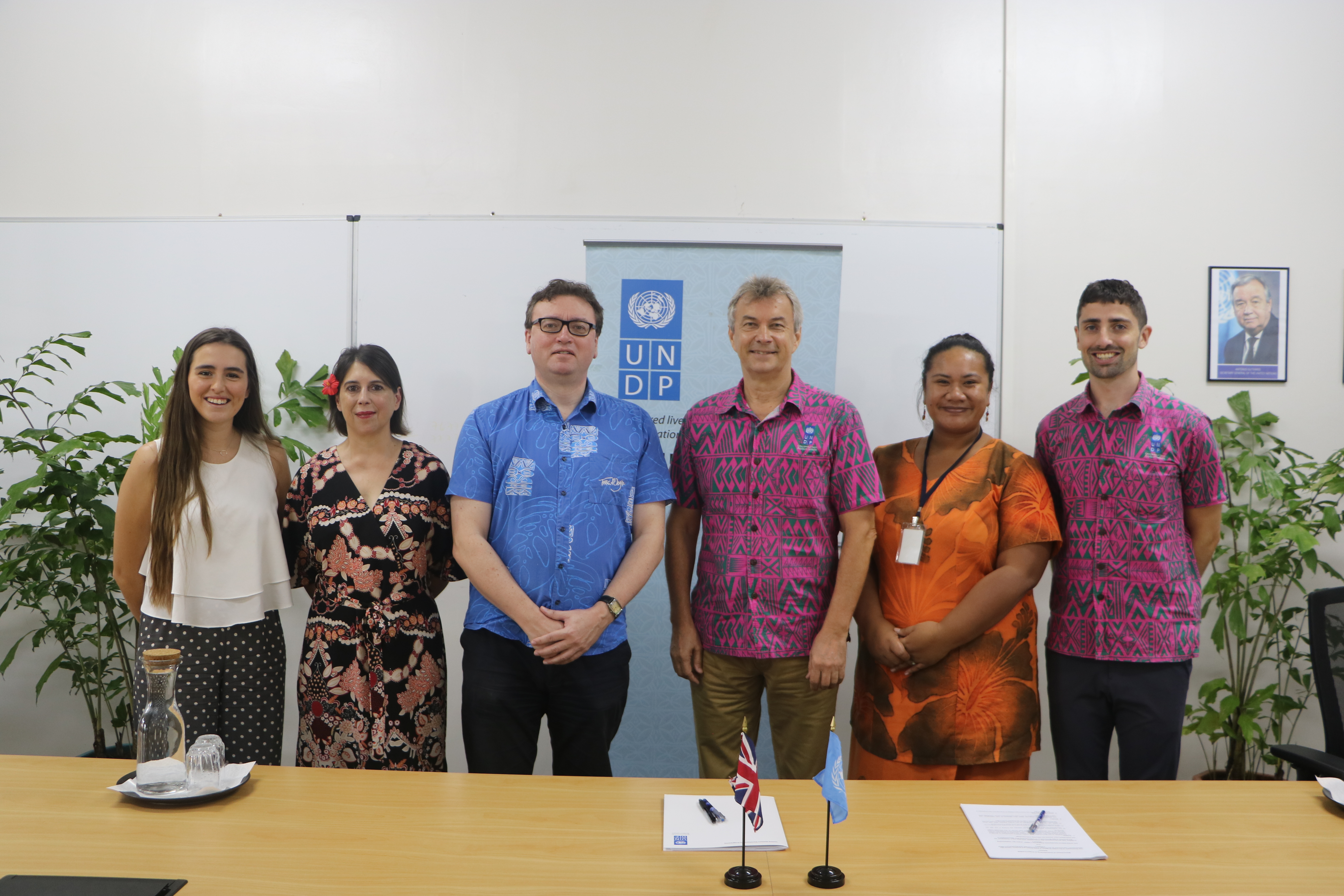Project tackles glass waste, youth unemployment
A United Nations Development Programme (U.N.D.P.) and British High Commission project to collect and recycle glass waste, while creating new jobs for young people, was launched on Monday.
The programme called 'Glass Recovery to Accelerate Circular Solutions in Samoa' is an initiative designed to promote a ‘circular economy’ with the goal of providing jobs for young people in the segregation, collection and recycling of glass waste.
The assistance co-funded by the British High Commission and UNDP is worth £37,000 (WST$126,000) and forms part of the latter's Samoa Multi-Country Office’s project under the COVID-19 Rapid Financing Facility.
British High Commissioner to Samoa, David Ward, and U.N.D.P’s Resident Representative, Jorn Sorensen, signed the agreement on Monday.
”I am delighted that the United Kingdom and U.ND.P. are able to work together on this project which will help ensure that Samoa can build back better from the [COVID-19] crisis, both by creating ongoing employment to mitigate the economic impact of [COVID-19] on Samoa, and by ensuring that the recovery will be more environmentally sustainable than ever before, keeping Samoa an attractive place for all its residents and visitors,” Mr. Ward said.
The project will be implemented by the Samoa Recycling and Waste Management Association.
The need for investment in the management of glass waste was emphasised in the aftermath of the Samoa COVID-19 socioeconomic impact evaluation, which proposed that public-private collaborations be formed to accelerate the growth of job formation in waste management.
“This is a vital project for job creation and waste management in Samoa as it seeks to pair climate action with COVID-19 socio-economic recovery and resilience-building through youth employment," Mr Sorensen said
"This will also help foster a circular green economy in the recovery of low-value waste streams, including glass, which is currently imported in its various forms, but landfilled in Samoa in view of low exportable value and volume."

Glass is the second largest waste stream (by mass) in Samoa, accounting for 23 per cent of the overall waste composition, but since it is 100 per cent recyclable, it demonstrates unique flexibility.
The angular design of crushed glass, displaying characteristics similar to those of natural aggregate, enhances the stability, longevity and efficiency of the new product being produced.
The scheme will be conducted over a span of 12 months, evaluating the viability of crushed glass for commercialisation into three chosen products, including concrete blocks, headstones and asphalt.







